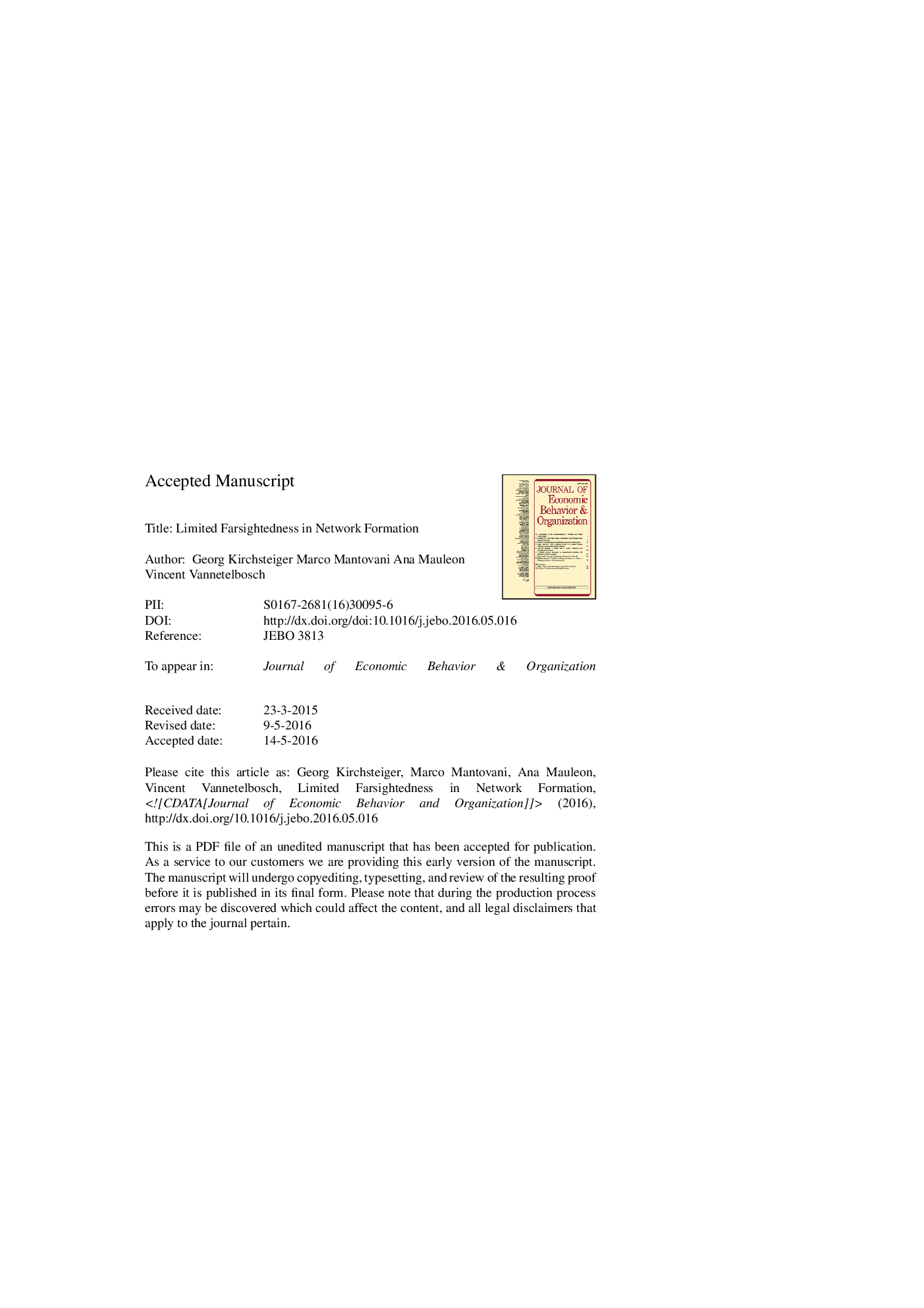| Article ID | Journal | Published Year | Pages | File Type |
|---|---|---|---|---|
| 7242782 | Journal of Economic Behavior & Organization | 2016 | 51 Pages |
Abstract
Pairwise stability (Jackson and Wolinsky, 1996) is the standard stability concept in network formation. It is a myopic notion in the sense that it only considers the immediate benefits of the players. A different perspective investigates perfect farsightedness, proposing related stability concepts. We design a simple network formation experiment to test these extreme theories, but find evidence against both of them: both myopically and farsightedly stable networks fail to emerge when they are not immune to limitedly farsighted deviations. The selection among multiple pairwise stable networks (and the performance of farsighted stability) crucially depends on the level of farsightedness needed to sustain them, and not on efficiency or cooperative considerations.
Keywords
Related Topics
Social Sciences and Humanities
Economics, Econometrics and Finance
Economics and Econometrics
Authors
Georg Kirchsteiger, Marco Mantovani, Ana Mauleon, Vincent Vannetelbosch,
